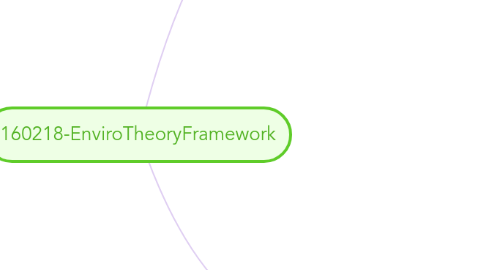
1. Using Big Words
1.1. Definition/limitations
1.1.1. "Big" as in all-encompassing concept
1.1.1.1. Problem: Essentialism (fixed in time, 8 foot paintbrush, monovalent, etc.)
1.1.2. "Big" as in meaningful to many
1.1.2.1. Problem: Can't answer why (i.e., understand Big Words as cultural inspirations)
1.1.3. "Big" as in powerful
1.1.3.1. Problem: Can't answer how (i.e., understand Big Words as politically efficacious)
1.2. Recommended approach
1.2.1. All Big Words are real…but only as ideologies (social ideas)
1.2.2. Nominalism: No universals (Big Words) a priori
1.2.2.1. This applies to substance universals, which make a particular claim on reality.
1.2.2.1.1. Nature
1.2.2.1.2. Intersectionality
1.2.2.2. This doesn't apply to process universals, which shape reality but in many possible ways.
1.2.2.2.1. Place
1.2.2.2.2. Power
1.2.2.3. Related notions
1.2.2.3.1. Actor-network theory
1.2.2.3.2. OOO
2. Four Domains
2.1. Questions
2.1.1. Ontology (Reality)
2.1.1.1. Our case: Anthropocene
2.1.1.2. Nature duality: Nature/culture
2.1.1.3. Place resolution: Counting beyond two
2.1.2. Epistemology (Knowlege)
2.1.2.1. Our case: Science wars
2.1.2.2. Nature duality: Matter/mind
2.1.2.3. Place resolution: Relationism
2.1.3. Ethics
2.1.3.1. Our case: Ecotopia
2.1.3.2. Duality: Facts/values
2.1.3.3. Place resolution: Grounding
2.1.4. Politics
2.1.4.1. Our case: Sustainability
2.1.4.2. Duality: Global/local
2.1.4.3. Place resolution: Cosmopolitanism
2.2. Reductionisms
2.2.1. Ontic-epistemic fallacy
2.2.1.1. Reduction of being to knowing, or vice versa
2.2.2. Ethical-political fallacy
2.2.2.1. Reduction of values to power, or vice versa
